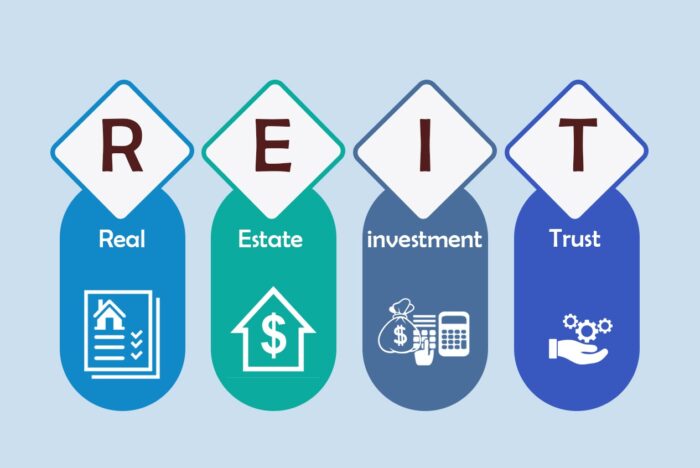
Real estate investing is a tempting option because it offers the chance for passive income and long-term growth that goes beyond the more common ways of investing in mutual funds, stocks and bonds.
While purchasing a home might mark your initial step into the realm of real estate investment, there are a myriad of other avenues to explore, and we’ll be more than happy to describe them below. Discover more here: https://www.cobizmag.com/how-to-minimize-real-estate-investment-risks-12-expert-tips/.
Consider these six diverse investments as a means to augment and diversify your investment portfolio with the dynamic world of real estate.
Purchase a Rental Property
Buying a house and renting it out to short- or long-term renters is a classic way to invest in real estate. One of the great things about being a landlord is that you can deduct a lot of the costs that come with it, like repairs, maintenance, insurance, utilities, management fees, mortgage interest, and property value loss.
If the right property is chosen, this approach could lead to positive cash flow and long-term value growth. But it’s important to know that investing in rental homes can take a lot of time and cost a lot of money to get started.
Despite these challenges, the prospect of enjoying positive cash flow and the property’s appreciation over time remains a compelling incentive.
Rent Out a Room
If you want to learn how to purchase real estate, you should be prepared to do a lot of research! Exploring the world of real estate investing can be a dynamic journey, and house hacking emerges as a compelling strategy for those seeking an entry point.
You would rent out a part of your main home with this method, like a room, the attic, or the basement. The beauty of house hacking lies in its potentially minimal start-up costs, which are contingent on the condition of the available space. By using this strategy to make extra money, you can successfully lower your monthly housing costs while also making mortgage payments and building equity at the same time.
One way to take house hacking to the next level is to buy a multifamily building and live in one apartment while renting out the rest. This adaptable strategy includes renting out a single room or even a partial duplex, opening up possibilities to find long-term tenants or, in areas where legislation allows, to try out short-term rentals through sites like Airbnb.
Try an Online Real Estate Investing Platform

These platforms, which are sometimes called “crowdfunding websites,” offer a new take on standard real estate investment for people who like to do things digitally. These sites connect developers with investors who want to buy real estate. The investors then pool their money to pay for the projects.
More people may be able to afford to invest in real estate because the minimum required investment is as low as $500. In exchange for their money, investors get either debt or ownership in a project, as well as the chance to get money back every month or every three months if the project does well.
It’s important to note that while these investments present the potential for higher returns compared to publicly traded REITs, they also come with increased risk and generally lack liquidity, limiting the ability to swiftly sell your shares. Read more here.
Flip a House

What does this mean, exactly? Well, thinking strategically about buying a cheap house, fixing it up, and then selling it for a profit is what house flipping is all about. Even though the promise of quick profits is appealing, it’s important to know that flipping successfully requires more than what you see on TV. It’s important to be able to see what a place could be and have a clear plan for how it could be changed.
Also, having sufficient funds, a trustworthy crew of contractors, and good cost-estimating skills are crucial if you want to turn a profit.
Not only that, but having good project management skills is also helpful for flipping houses because it speeds up the process of selling the property and lowers the costs of keeping it. Some of those costs involve mortgage payments, property taxes, utilities, insurance and homeowners’ association (HOA) fees. Learn more here: https://www.telegraph.co.uk/money/property/buying-selling/make-fortune-flipping-property/.
Purchase a REIT

For those seeking exposure to real estate without the intricacies of property management, investing in a Real Estate Investment Trust (REIT) offers an attractive alternative. A REIT is a business that owns and manages buildings that bring in money, like apartments, offices, warehouses, medical facilities, hotels, and shopping malls.
Similar to mutual funds, a REIT pools capital from multiple investors to create a diversified portfolio of assets. Investors purchase shares in the REIT, earning a proportionate share of the income generated by the real estate holdings.
As an important point, most REITs are traded on stock markets, which makes them an easy and liquid way for people to invest in real estate. Investors receive dividends from the REIT’s leasing and rental activities, as REITs are mandated by law to distribute at least 90% of their taxable income as shareholder dividends annually.
Consider investing in REIG

A Real Estate Investment Group (REIG) is a way for people who want to own rental properties but don’t want to be in charge of managing them all by themselves. Individual investors join REIGs to pool their money and knowledge and invest in properties that can make money, like apartment buildings, condos, and commercial buildings.
This approach allows individuals to benefit from the combined buying power and experience of the group. While REIGs offer the advantage of learning from seasoned investors and participating in diverse deals, potential downsides include membership fees that may impact profits and the risk of partnering with an inexperienced or unskilled group.
When thinking about joining a REIG, it’s important to do a lot of research and make sure your goals and risk tolerance are in line with the group’s. This will help you have a potentially rewarding experience.











